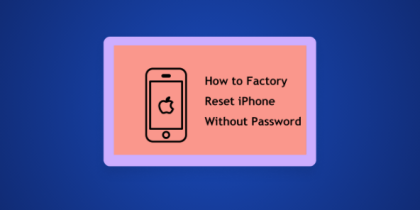Table of Contents
As the world gears up for the Paris 2024 Olympics, a different kind of race is unfolding behind the scenes—a high-stakes cybersecurity battle. The Paris 2024 Olympics kicks off on July 26, 2024, but it’s more than just a global sporting spectacle – it’s a high-stakes battleground for cybercriminals and cyberthreats such as ransomware, phishing and digital fraud.
With billions of eyes glued to the action, high media coverage and the digital infrastructure, the event presents an irresistible target for those seeking financial gain, political influence, or simply chaos. Let’s explore the cybersecurity landscape of the Paris 2024 Olympics and how one can safely attend or view the games.
Read more: Paris Olympics 2024: Everything You need to know about Summer Olympics
The Magnitude of the Cyberattacks
Many experts appear to believe the Paris Olympics 2024 could be a perfect battleground for cyberattacks. The massive influx of visitors, the complex network of digital infrastructure, and the intense media spotlight create an environment ripe for exploitation.
According to the International Olympic Committee, more than 3 billion people worldwide tuned in to watch the 2020 Tokyo Olympics on linear TV and digital platforms, even though it was held in 2021 due to COVID-19 complications.
Similarly, trends for the 2024 U.S. Olympic Trial events suggest high viewership numbers for the 2024 Olympic Games. NBC recorded 7.6 million average viewers during Sunday night’s Olympic all-around qualifying meet between U.S. gymnast Simone Biles and the women’s gymnastics team.
The Paris 2024 Olympics mirrors the digital threats seen during other major sporting events. According to Japan times, the Tokyo 2020 Olympics saw an astonishing 4.4 billion documented cyberattacks, a sharp increase from the 212 million attacks during the London 2012 Games.
This surge highlights the growing sophistication and audacity of cybercriminals.
“The Paris 2024 Olympics will be an exhilarating event, but it’s also a prime opportunity for cybercriminals. As athletes vie for gold, hackers are gearing up to exploit the global excitement surrounding the games,” Adhiran Thirmal, working at Security Compass, and a cybersecurity solutions expert, told PureVPN. “The Olympics, a symbol of unity and sportsmanship, should not be overshadowed by cybercrime. With vigilance and proactive measures, we can ensure a safe and enjoyable experience for everyone.”
So, whether it’s the digital ticketing systems or the live streaming platforms, every digital touchpoint is potentially vulnerable.
Read more: The Chilling Reality of Data Leakage in the Surveillance Economy
Sophisticated Cyber Threats
Cyberattacks at these events are driven by various motives, primarily financial gain. Scams, digital fraud, and data theft are rampant as excited fans often overlook potential risks when purchasing tickets, arranging accommodations, or buying memorabilia, hence disrupting the cybersecurity landscape during the Olympic games.
Fake Ticketing
According to the FortiRecon Threat Intelligence Report, there has been a rise in typosquatting websites, where cybercriminals create fake websites that look almost identical to the official Olympic ticket website.
These fake sites have similar web addresses, but with slight spelling errors (like “oympics” instead of “olympics”). If you accidentally visit one of these fake sites and buy tickets, you won’t receive anything, and you’ll lose your money.
Sead Fadilpašić, a veteran journalist with almost two decades of experience, discussed this concern with PureVPN.
“One of the biggest and most common scams we’re seeing is that people are duplicating tickets or passes,” he stated. “How do they do it? They copy them off social media. Think about it – you’ve got a VIP pass to a show or a ticket to the Olympics. You’re super excited, so you post a picture of it online. Now every scammer out there knows how these look, and they can produce a million fake ones before the event. If you’re super unlucky, they might impersonate you and use your ticket.”
Typosquatting
The French Gendarmerie Nationale, an Olympic partner, has identified 338 fraudulent websites claiming to sell Olympic tickets. To combat this, the French authorities have identified hundreds of these fake websites and have shut down 51 of them. This clearly underscores the meticulous planning and execution by cybercriminals.
Hacking and fraudulent activities
Moreover, the political climate surrounding the Paris Olympics adds another layer of complexity. The absence of Russian and Belarusian athletes from this year’s games has fueled hacktivist activity and ransomware attacks from pro-Russian groups such as LulzSec, Cyber Army Russia Reborn, Cyber Dragon, and Dragonforce.
Other hacktivist groups from Sudan, Indonesia, Turkey, and India are also prevalent. They are eager to disrupt the event, target the infrastructure, media channels and affiliated organizations to amplify their message on a global stage, as reported by Secure World.
“Artificial intelligence is going to be a major player when it comes to cybersecurity in this Olympics – from both the offensive and defensive sides.” Edward Tian, CEO of GPTZero, told PureVPN. “Hackers and cybercriminals, who are already incredibly intelligent and tech-savvy, are going to be using AI to make their cyberattacks that much stronger. But, at the same time, those fighting cyberattacks and strengthening data security as it relates to the Olympics are also going to be using AI to improve their own methods.”
Read more: Beyond the $$$: The Devastating Human Cost of Ransomware Attacks
The Dark Web: A Marketplace for Stolen Information
The dark web has become a bustling marketplace for cybercriminals. According to a FortiGuard Labs report, there has been an almost 80% to 90% surge in darknet activity targeting French-speaking users, government agencies, and businesses.
The sale of stolen data, including personally identifiable information (PII), has become a lucrative black market commodity. Phishing kits and exploit tools specifically designed for the Paris Olympics are readily available, making it easier than ever for cybercriminals to launch attacks.
The Rise of Infostealers
Information stealer malware, known as infostealers, is another significant threat in the 2024 Paris Olympics. It is designed to infiltrate a victim’s computer or device and gain unauthorized access to sensitive information, such as login credentials, credit card details, and other personal data.
According to statistics, Raccoon is currently the most active infostealer, accounting for 59% of all detections. Being an effective and inexpensive Malware-as-a-Service (MaaS), it is easily available on dark web forums.
Raccoon is designed to steal sensitive data such as browser autofill passwords, history, cookies, credit card data, usernames, passwords, and cryptocurrency wallet details. Lumma and Vidar follow Raccoon in prevalence, highlighting the sophisticated tools at cybercriminals’ disposal.
Read more: Malware 101: Understanding, identifying, and preventing cyber threats
Phishing and Fraudulent Activities
Cybercriminals are taking advantage of phishing kits that simplify the process for social engineering attacks, creating convincing emails and malicious payloads. Furthermore, cyberthreat actors are relying on AI-generated text to eliminate spelling and grammatical errors that typically reveal phishing attempts.
Several lottery scams impersonating brands like Coca-Cola and Microsoft are also on the rise during the 2024 Summer Olympics, targeting users in the US, Japan, Germany, France, Australia, the UK, and Slovakia.
The increase in coding services for creating phishing websites, bulk SMS services for mass communication, and phone number spoofing services facilitating phishing attacks are predicted to spread misinformation and disrupt communications during Paris Olympics 2024.
Moreover, near Olympic venues and adjacent areas with free yet unsecured WiFi networks, cybercriminals may set up hotspots to intercept users’ data. Users accessing bank accounts and sensitive information while connected to an unsecured WiFi network risk losing their accounts and funds.
Read more: Phishing for Trouble: How URL Scams Threaten Our Digital Lives
The Human Factor
While technology plays a crucial role in defending against cyberattacking, the human element remains a critical vulnerability. Phishing remains a prevalent threat, with cybercriminals using increasingly sophisticated tactics to deceive unsuspecting victims. The excitement and anticipation surrounding the Olympics can cloud judgment, making people more susceptible to falling for scams.
“As the Paris 2024 Olympics approach, cybercriminals are ramping up their efforts to exploit the event’s high profile. From sophisticated phishing campaigns to fraudulent ticketing websites, the threats are manifold. Reports indicate an 80-90% surge in darknet activities related to the Olympics, suggesting a looming wave of attacks,” Michael Robert, a cybersecurity specialist, AI expert, passionate gamer, and senior technical contributor at GTA Boom, told PureVPN.
Ensuring Cybersecurity at the Paris 2024 Olympics
The cybersecurity landscape of the Paris 2024 Olympics is complex and multifaceted. Ensuring the safety and integrity of the Games requires a comprehensive approach involving various stakeholders, including government agencies, private companies, and international partners.
1. Robust Cybersecurity Infrastructure
Upgrading cybersecurity infrastructure and technologies can strengthen defenses against advanced threats. Also, implement advanced threat detection, encryption and response systems to protect sensitive data. Organizations should enforce multi-factor authentication, deploy endpoint protection, maintain patch management, and safeguard against DDoS attacks.
2. Public Awareness Campaigns
It is very important to educate the public about the risks of cyberattacks. Educating them can help prevent individuals from becoming victims. They can implement numerous robust measures such as using a premium VPN service like PureVPN, checking URL when purchasing tickets online and caution while using public WiFi.
3. International Cooperation
Sharing threat intelligence among stakeholders can help identify emerging threats and develop effective countermeasures. Law enforcement agencies must collaborate with other parties to combat cybercrime present at the 2024 Paris Olympics.
4. Resilience Planning
Identify critical assets and evaluate threat scenarios. Develop comprehensive incident response plans and mitigation strategies to address potential vulnerabilities and recover from cyberattacks.
5. Robust Incident Response Plans
Establish dedicated incident response teams for swift action during cyberattacks.
Develop clear communication protocols for rapid information sharing between stakeholders.
6. Avoid Public WiFi
Travelers and the general public must be cautious of the public WiFi as cybercriminals could intercept the unsecured network and perform fraudulent activities. It is recommended to use endpoint protection and a VPN like PureVPN to encrypt traffic.
The Paris 2024 Olympics is a global stage where athletes compete for gold. But behind the scenes, a different battle is raging – a battle for digital supremacy. As spectators enjoy the games, it’s crucial to remember the unseen forces working tirelessly to protect the event from cyber threats.
Bottom Line
The convergence of international visitors, extensive media coverage, and the Paris 2024 Olympics reliance on critical infrastructure makes the event an ideal environment for cyberattacks. Threat actors can exploit the high volume of online transactions, communication, and data exchange to steal sensitive information, disrupt operations, or launch misinformation campaigns.
To ensure a safe and secure Olympic experience, robust cybersecurity measures are crucial. Organizations and individuals must remain vigilant, adopting proactive threat intelligence and cybersecurity strategies. As we celebrate athleticism and sportsmanship, we must also be prepared to combat the unseen cybersecurity battle of the Paris 2024 Olympics.
Stay informed about the latest cybersecurity threats and best practices by following PureVPN Blog.









